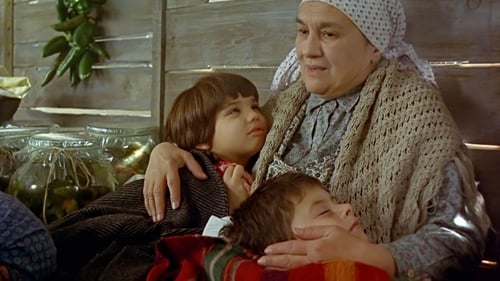Sanda Toma
Nacimiento : 1934-10-27, Bucureşti, Romania
Muerte : 2022-11-26

La vieille femme
A French real estate developer prepares an old Romanian thermal resort for renovation. A Roman fresco in a crypt delays the project, so he tries to burn it down. But he locks himself in a courtyard by mistake. He stays trapped for days, the neighborhood being deserted. He tries communicating with the few remaining residents and changes from a civilized being to a beast, until finding new perspectives. Will he leave the courtyard, or not?

Corrupt ex-communist politicians in 90s Romania rule the country, with younger politicians vying to take their place.

Femme au baluchon
When his credit card has just been swallowed by distributor Bruno Lussac, State Inspector Débé crosses the limits of home ethics when he learns that he has just been banned from banking. Disguised as a Southerner for a costume party where he was supposed to arrest drug dealers, he lures his colleagues into robbing a bank; he causes a bloodbath but comes out victorious of this heist. For his accomplices, the informant, and pretty peacekeeper Cécile Barko, known as Cyborg, this is the start of a crazy run.

Durante la Segunda Guerra Mundial (1939-1945), con el objetivo de huir de los nazis y evitar el exterminio, un grupo de judíos de un pueblo de Europa del Este organiza un convoy simulando que se trata de un tren de prisioneros. Algunos de ellos no tendrán más remedio que hacerse pasar por soldados nazis.

Andrei Blaier's film catches the last days of The Stone Cross a low class brothels area that became some kind of an institution in the landscape of Bucharest before the Communist period, doomed to destruction under the new rules of proletarian morals that the Communists were trying to impose. The idea could be the start of a great film, with the prostitution being seen not so much from its destructive and exploitation perspective, but rather as a form of freedom in a time when the whole society was falling under the rule of propaganda, hypocrisy, and repression. In a world due to fall under tyranny for the coming decades prostitution becomes a metaphor of the old more free way of life.

A few unrelated groups of people leave for vacation from Bucharest for the mountains. They meet by chance in Poiana Brașov.

Mme. Cathy
After 1950, when the comunist regime is fully entrenched, some Bourgeois descendants have to make a living being movie extras. Continuation of "On the Left Bank of the Blue Danube"

Store Manager
Problems ensue once a girl finds about her biological father which tries to be a part of her life.

Angela Prisăcaru
Threatening letters, phone calls in the middle of the night... Who is threatening engineer Stamatiad?

Aneta Blidaru
A police officer is investigating the disappearance of a colleague's young boy. His key seems to be the "dark skinned" friend of the boy about whom nobody cares, including the police.

Lola
Young engineer Doru is called to the Prosecutor's Office and questioned on his wife's unlawful ways of making money. Soon he'll learn about her true character and he'll regret having broken up with Livia, a woman who truly loved him.

Diana

Tamara Giraldoni
In this undistinguished drama, Darclee (Silvia Popovici) is a lead singer for an opera company in Romania with a heavy load of responsibility. It seems the company is in dire need of a decent physical structure for their performances and a brace -- or more -- of good singers to improve their image and sales. In other words, they need just about everything except an excellent lead singer; Darclee fills that bill. And so the company rather unfairly leans on her to get the people and the funds they so desperately want. Matei Jacob directs.

Lucietta
Movie adaptation after Carlo Goldoni`s "I rusteghi" comedy, written in 1760.











